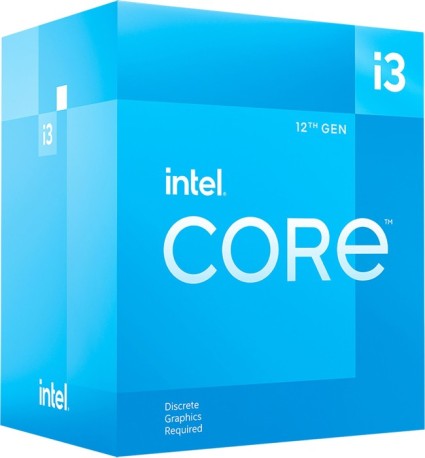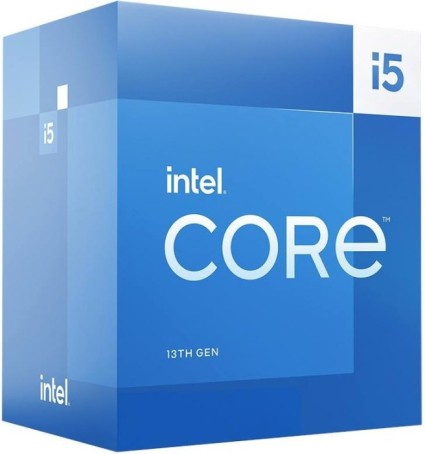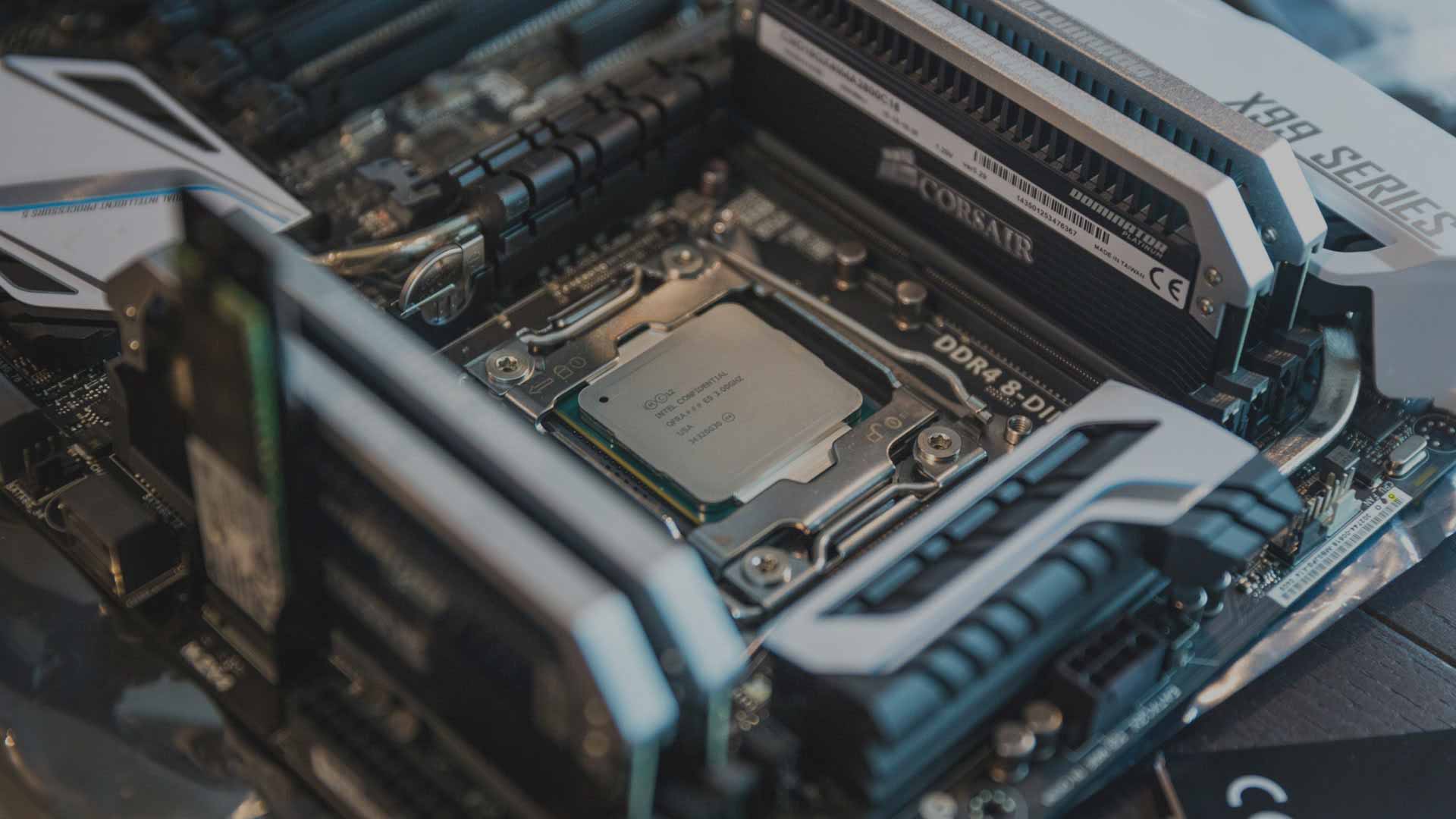
Intel Core i3-12100F vs. Intel Core i5-13500
In diesem Vergleich von Intel Core i3-12100F versus Intel Core i5-13500 vergleichen wir die technischen Daten der beiden GPUs. Welche Grafikkarte ist schneller? Hier gibt es FPS & Benchmarks in Gaming und Anwendungen. Außerdem Daten zu Verbrauch, Effizienz (FPS pro Watt) und Preis-Leistung (FPS pro Euro).

Allgemeine Informationen
| Günstigster Preis |
|
|
| Serie | Intel Core i-12000 | Intel Core i-13000 |
| Chip-Architektur | Golden Cove | Golden Cove (P-Core) + Gracemont (E-Core) |
| Codename | Alder Lake-S | Raptor Lake-S |
| Produktname | Intel Core i3-12100F | Intel Core i5-13500 |
Spezifikationen
Die Anzahl der Rechenkerne, die maximale Taktrate und die Größe des Cache können sich auf die Leistung in Spielen und Anwendungen auswirken. Mit 4 Kernen bietet der Intel Core i3-12100F deutlich weniger Kerne als der Intel Core i5-13500 mit 14 Rechenkernen. Der maximale Takt liegt beim Intel Core i3-12100F mit 4.30 GHz niedriger als beim Intel Core i5-13500 mit 4.80 GHz. Der Cache ist beim Intel Core i3-12100F mit 5 MB L2-Cache + 12 MB L3-Cache zu 11.5 MB L2-Cache + 24 MB L3-Cache deutlich kleiner als beim Intel Core i5-13500.
| Kerne (Gesamt) | 4 | 14 |
| Anzahl P-Cores | 4C | 6C |
| Anzahl E-Cores | - | 8c |
| Basis-Takt | 3.30 MHz | 2.50 MHz |
| Takt P-Cores | 3.30 MHz | 2.50 MHz |
| Takt E-Cores | - | 1.80 MHz |
| Turbo-Takt | 4.30 MHz | 4.80 MHz |
| Turbo P-Cores | 4.30 MHz | 4.80 MHz |
| Turbo E-Cores | - | 3.50 MHz |
| Gesamter L2-Cache | 5 MB | 11.5 MB |
| Gesamter L3-Cache | 12 MB | 24 MB |
| Fertigung | Intel 7 | Intel 7 |
| Leistungsaufnahme (TDP) | 58W (Processor Base Power)<br/>89W (Maximum Turbo Power) | 65W (Processor Base Power)<br/>154W (Maximum Turbo Power) |
Mainboard-Kompatibilität
Sowohl der Intel Core i3-12100F als auch der Intel Core i5-13500 setzen auf den Sockel Intel 1700.
| Sockel | Intel 1700 | Intel 1700 |
| Chipsatz-Eignung | B660, B760, H610, H610E, H670, H770, Q670, Q670E, R680E, W680, Z690, Z790 | B660, B760, H610, H610E, H670, H770, Q670, Q670E, R680E, W680, Z690, Z790 |
| PCIe-3.0-Lanes | - | - |
| PCIe-4.0-Lanes | 4x | 4x |
| PCIe-5.0-Lanes | 16x | 16x |
RAM-Kompatibilität
Während Sie beim Intel Core i3-12100F bis zu 128 GB vom Typ DDR4/DDR5 im Dual Channel verbauen können, unterstützt der Intel Core i5-13500 bis zu 192 GB DDR4/DDR5 Arbeitsspeicher.
| Speicher-Controller | DDR4/DDR5 | DDR4/DDR5 |
| Anzahl Speicherkanäle | Dual Channel | Dual Channel |
| max. Speichermenge | 128 GB | 192 GB |
| ECC-Unterstützung | - | ✓ |
Grafik
| iGPU | - | ✓ |
| iGPU-Modell | - | Intel UHD Graphics 770 |
| iGPU-Takt | - | 0,30-1,55GHz |
| iGPU-Einheiten | - | 2Xe/32EU/256SP |
| iGPU-Rechenleistung | - | 0.82 TFLOPS (FP32) |
| iGPU-Architektur | - | Xe-LP / Gen 12.2, Codename "Raptor Lake GT1" |
| iGPU-Interface | - | DP 1.4a (7680x4320@60Hz), eDP 1.4b (5120x3200@120Hz), HDMI 2.1 (4096x2160@60Hz) |
| iGPU-Funktionen | - | 4x Display Support, 2x Codec Engines / Video Decode Boxes, Intel Clear Video HD, Intel Quick Sync Video, AV1 decode, H.265 encode/decode, VP9 encode/decode, HDCP 2.3, DirectX 12, OpenGL 4.5, OpenCL 3.0, Vulkan 1.0 |
Sonstiges
| Freier Multiplikator | - | - |
| Stepping | H0, Spec Code: SRL63 | C0, Spec Code: SRMBM |
| Heatspreader-Kontaktmittel | Metall/verlötet | Metall/verlötet |
| Temparatur max. | 100°C (Tjunction) | 100°C (Tjunction) |
| Fernwartung | - | ✓ (Intel vPro Essentials, Intel vPro Enterprise) |
| Einführung | 2022/Q1 (4.1.2022) | 2023/Q1 (3.1.2023) |
| Herstellergarantie | 3 Jahre bei Intel® Boxed-Prozessoren (Info DE/Info EN) | 3 Jahre bei Intel® Boxed-Prozessoren (Info DE/Info EN) |
CPU-Funktionen
| AES-NI | ✓ | ✓ |
| AVX | ✓ | ✓ |
| AVX2 | ✓ | ✓ |
| Boot Guard | ✓ | ✓ |
| CET | ✓ | ✓ |
| DL Boost | ✓ | ✓ |
| EIST | ✓ | ✓ |
| GNA 3.0 | ✓ | ✓ |
| Idle States | ✓ | ✓ |
| Instruction Set | ✓ | ✓ |
| ISM | ✓ | ✓ |
| MBEC | ✓ | ✓ |
| Optane Memory Support | ✓ | - |
| OS Guard | ✓ | ✓ |
| Secure Key | ✓ | ✓ |
| Speed Shift | ✓ | ✓ |
| SSE4.1 | ✓ | ✓ |
| SSE4.2 | ✓ | ✓ |
| Thermal Monitoring | ✓ | ✓ |
| VMD | ✓ | ✓ |
| VT-d | ✓ | ✓ |
| VT-x | ✓ | ✓ |
| VT-x EPT | ✓ | ✓ |
| XD Bit | ✓ | ✓ |
Spiele
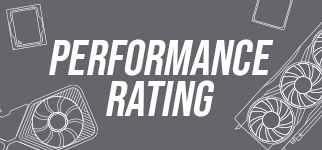
- Intel Core i5-13500AVG148.48 %1%159.10 %
- Intel Core i3-12100FAVG100.00 %1%100.00 %

- Intel Core i3-12100FAVG88.2 FPS1%55.7 FPS
- Intel Core i5-13500AVG213.5 FPS1%159.2 FPS
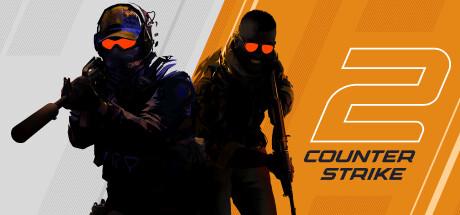
- Intel Core i3-12100FAVG327.6 FPS1%204.6 FPS
- Intel Core i5-13500AVG472.6 FPS1%255 FPS

- Intel Core i3-12100FAVG98.4 FPS1%57.9 FPS
- Intel Core i5-13500AVG129.4 FPS1%90.8 FPS

- Intel Core i3-12100FAVG142.2 FPS1%100.7 FPS
- Intel Core i5-13500AVG179.7 FPS1%131.2 FPS

- Intel Core i3-12100FAVG105.4 FPS1%74.2 FPS
- Intel Core i5-13500AVG132.1 FPS1%96.4 FPS

- Intel Core i3-12100FAVG160 FPS1%88.7 FPS
- Intel Core i5-13500AVG209.4 FPS1%133.2 FPS

- Intel Core i3-12100FAVG59.6 FPS1%44.4 FPS
- Intel Core i5-13500AVG73.4 FPS1%55.8 FPS
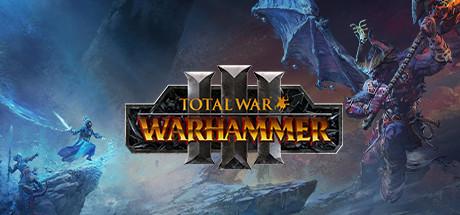
- Intel Core i3-12100FAVG147.1 FPS1%80.2 FPS
- Intel Core i5-13500AVG241.6 FPS1%135.9 FPS

- Intel Core i5-13500AVG0.88 FPSIntel Core i3-12100FAVG1.90 FPS

- Intel Core i5-13500AVG2.18 FPSIntel Core i3-12100FAVG2.79 FPS
Produktivität

- Intel Core i5-13500AVG179.09 %Intel Core i3-12100FAVG100.00 %

- Intel Core i5-13500PKT103859 PunkteIntel Core i3-12100FPKT42943 Punkte

- Intel Core i5-13500PKT1243 PunkteIntel Core i3-12100FPKT893 Punkte

- Intel Core i5-13500PKT818 PunkteIntel Core i3-12100FPKT474 Punkte
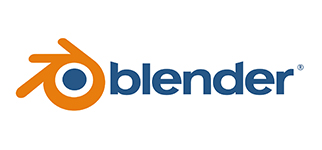
- Intel Core i5-13500SEK327 SekundenIntel Core i3-12100FSEK758 Sekunden

- Intel Core i5-13500PKT1081 PunkteIntel Core i3-12100FPKT400 Punkte

- Intel Core i5-13500PKT2647 PunkteIntel Core i3-12100FPKT1910 Punkte

- Intel Core i5-13500PKT14309 PunkteIntel Core i3-12100FPKT7918 Punkte

- Intel Core i5-13500SEK76 SekundenIntel Core i3-12100FSEK188 Sekunden
